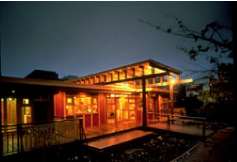 |  | |||||||||
BUILDING YOUR OWN COMMUNITY CENTRE | |||
 | |||
In common with everyone else today, community groups and organisations face enormous problems. They find it ever more difficult to cope in the face of the increasing social problems and decreased funding opportunities of modern Britain. Consequently, when they are looking for premises or considering building works, they face a number of, often conflicting, demands:
Thus groups rarely have sufficient funding and that which is raised takes considerable time during which period the group's circumstances can change with consequences for their building needs. The result can be that they do not achieve their goal, ie. the ideal building that meets a!l requirements within an agreed budget, is completed on time, is inexpensive to run, a pleasure to use and sufficiently noteworthy for funding bodies and others to be pleased with. Groups finish up with either a standard building, or a specially designed one that tries to accommodate conflicting requirements and can be difficult to extend, or the renovation and conversion of an existing building. Yet the right building is often a prime consideration for the successful running of a project. A more ideal solution is, however, available. That is the construction of a building specifically designed and built to your requirements within a .easonable budget, which is inexpensive to nun and easily adaptable to future changes in circumstances. If this sounds too good to be true, it should be noted that there are numerous examples of such buildings, both for housing and community use, self built and otherwise, throughout the country. These have have been built using the Segal method which has been devised to enable people with no previous building skills to actually build! It also produces buildings that are among the most environmentally friendly and energy efficient in the country and a number have won awards. Among those who have built are men and women, single parents, those near retirement age and single homeless young people. In one outstanding example a group of people with learning difficulties and other volunteers built their own horticultural training centre within budget and on time. For community buildings, the Trust can, therefore, provide a detailed service. This may initially take the form of a Feasibility Study, which has the aim of putting the group in a position of strength and knowledge before they approach a Local Authority or a professional consultant. Such a study will include advice on fundraising which may help to pay for the study in the event that the group does not have the finance to do so. The Trust undertakes such work at risk until funding becomes available and would discuss the degree of the Trust's involvement with the group beforehand. Feasibility Studies normally include information on the following:
Group Development Work
Site Related Work
Building Requirements
Funding and Finance
The Trust has carried out a number of Feasibility Studies and is able to advise on all these areas, producing a document which can be used to the benefit of all parties involved in order to help get a project completed. | ||